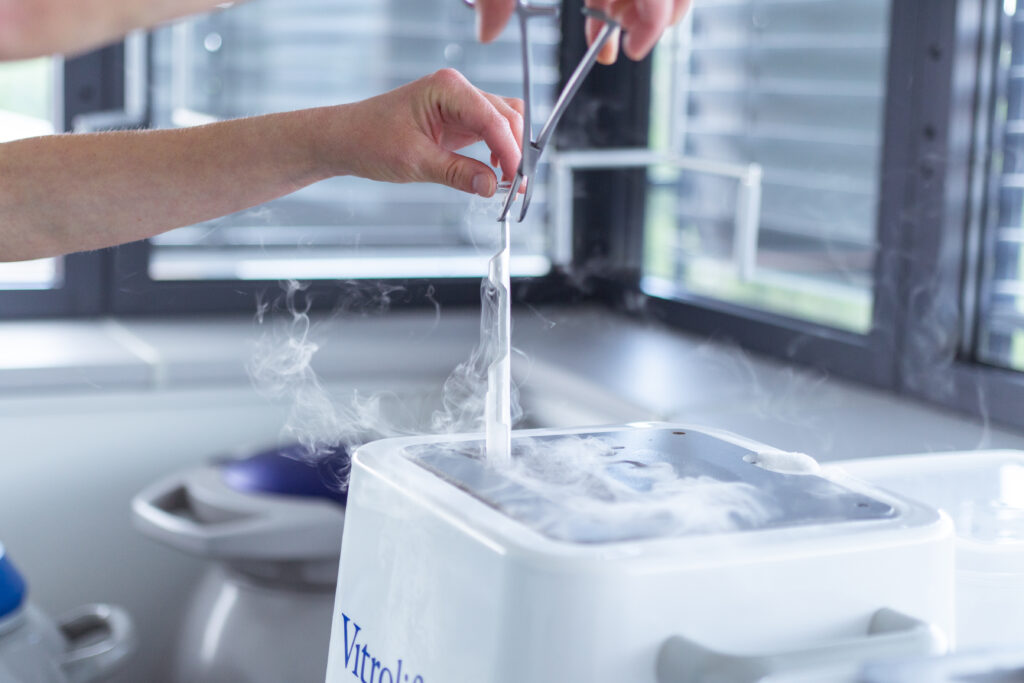The first baby was not a problem – after a few months of trying, you were rejoicing in a positive pregnancy test. Now you’d like to give your little one a little brother or sister, but it’s still not going well. You are not alone, this problem is known as secondary infertility and is becoming more and more common. What could be the causes of these problems and what are the options?
What is secondary infertility and when to start thinking about it?
Secondary infertility is a condition in which a couple has already had one or more children, but efforts to have more have not worked out for more than a year. For couples where the woman is over 35, this time is reduced to six months. This problem can be very frustrating for couples because they often assume that if they have already conceived a child once without any problems, they should have no problem getting pregnant a second time.
What are the causes of secondary infertility?
Secondary infertility can have many different causes that can affect both women and men. Even if a couple has already gone through a successful pregnancy, there may be various changes in the partners’ health that will affect future fertility.
Secondary infertility in women
In women, the main cause is age, as the number and quality of eggs decreases with age. There may also be various changes in the hormonal profile, such as a deterioration in thyroid function or an increase in prolactin levels, which can affect fertility. “Damage to the uterus and fallopian tubes can also be a cause of secondary infertility. For example, scarring from previous childbirth, caesarean section or surgery may be to blame,” Veselá says, adding that lifestyle deterioration may also be to blame for problems with subsequent pregnancy. Specifically, this includes stress, being overweight, underweight and unhealthy habits such as smoking or excessive alcohol consumption.
Secondary infertility in men
However, secondary infertility is not just a female problem. In men too, an unhealthy lifestyle can be the cause of deteriorating sperm quality. However, injury or even age can also be a reason. “Although it is not talked about as much, age is also important in the context of fertility in men. This is because as age increases, sperm motility, quality and number decrease. In addition, genetic mutations in sperm also increase,” says the doctor. This may also be due to a decline in testosterone levels, which affects sperm production and a man’s overall fertility. It may also be that the man has had some infection that has damaged the repIf you have been trying to have a baby for more than a year (or six months if the woman is over 35) without success, don’t be afraid to contact fertility treatment specialists. It’s not a good idea to postpone the examination and subsequent treatment, as time can play a crucial role.roductive organs and affected fertility.
Diagnosis and when to see a doctor
Women should have an ultrasound examination of the small pelvis, a gynecological examination, a hormone profile including a thyroid examination, a genetic examination and, if indicated, an immunological examination and an examination for infectious diseases. “One of the first steps that every woman should take is an AMH test, which determines the egg supply.
For men, the first step is a spermogram, which is a microscopic analysis of the ejaculate. The ejaculate volume, sperm concentration and total sperm count are examined. Sperm motility, shape, pH and viability are also important. The results of the spermiogram are compared with reference values and can reveal many important things about the causes of infertility. The man will also have genetic testing if indicated
If you too are having trouble conceiving another baby, don’t be afraid to contact our experts. We are ready to help you at our clinics in Brno and Ostrava.



